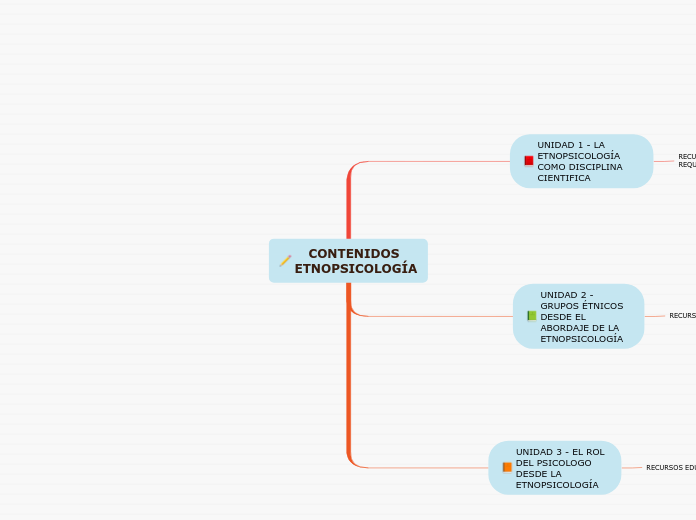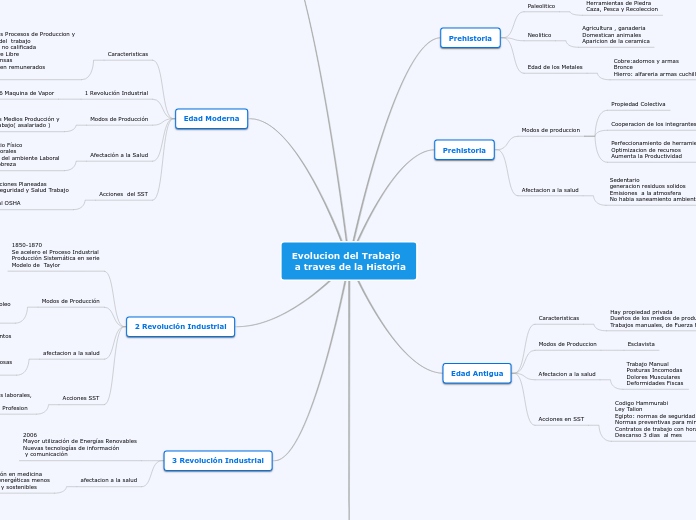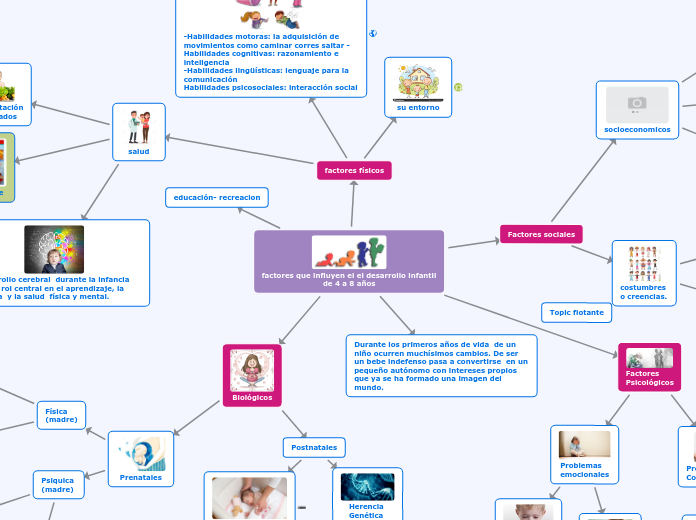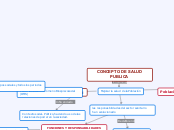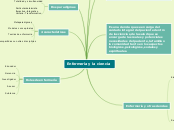CONTENIDOS ETNOPSICOLOGÍA
To name your story, you have to think about the overall message and what you want your audience to understand from the story. Also, make it relevant and easy to remember.
UNIDAD 3 - EL ROL DEL PSICOLOGO DESDE LA ETNOPSICOLOGÍA
The ending of a story is essential. We all know that if the ending is weak, what happened before loses its importance. So make it unpredictable, but fair. A resolved ending answers all the questions and ties up any loose threads from the plot.
This is the moment when the main character surpasses the last obstacle and finally faces their greatest challenge.
The climax usually follows one of these patterns:
- realization
- resolution
- choice
Type in your answer.
* Colegio de psicólogos de Colombia (2009) Código deontológico y Bioético de Psicología.
* Restrepo, E. (2016). Etnografía: alcances, técnicas y éticas.
* Peralta, C. (2009). Etnografía y métodos etnográficos.
* Organización Panamericana de la Salud y Ministerio de salud y Protección Social (2013). Modelo con enfoque diferencial de etnia e intercultural para las intervenciones en salud mental con énfasis en conducta suicida para grupos y pueblos étnicos indígenas.
UNIDAD 2 - GRUPOS ÉTNICOS DESDE EL ABORDAJE DE LA ETNOPSICOLOGÍA
The middle of the story is where you add layers of complications that will lead to the end. Reveal more about the character's journey. Did their personality go through changes? How did they overcome the challenges? And as you build up the story’s central conflict, make it more personal to that character. Also, from the middle act, you have to lead into the final act.
Each story has a main character and that character usually needs to solve a problem or challenge. The character's challenge is the one that creates tension throughout the story.
* Fericgla, J. (2003) Las experiencias activadoras de estructuras en el desarrollo individual y de las sociedades.
* Esteban, M. Ratner, C. (2010). Historia, conceptos fundacionales y perspectivas contemporáneas en psicología cultural.
* Giménez, G. (2001). Cultura, territorio y migraciones.
Type in any other challenges which other characters in the story need to face.
Other challenges
* Aguirre, A. (2015). La Etnopsicología como identidad de los pueblos.
In most stories, there are 3 challenges. The number 3 is a mystical number symbolizing completeness. Try to come up with interesting challenges with which your character needs to struggle.
See a few examples below:
- turns into a werewolf at night
- is sent back in time
Challenges
UNIDAD 1 - LA ETNOPSICOLOGÍA COMO DISCIPLINA CIENTIFICA
In the beginning of the story (or the exposition), you will need to introduce the setting and characters. You might also want to introduce the main conflict. This part of the story is important because it gives the reader necessary background information and maybe even a first insight into a character’s personality.
RECURSOS EDUCATIVOS REQUERIDOS
Characters are essential to a good story. Usually, the protagonist(s) is/are the most affected by the plot. Introduce a character by focusing on their actions, interests, and occupation, as the physical appearance doesn't make a difference in most cases.
* Guzmán Maciel, C. (2020) La Etnopsicología como identidad de los pueblos
* OVI Unidad 1 - Historia y definición de la Etnopsicología
* Tirado, F.(2003). Psicología de los pueblos- La vigencia de Wundt.
* Patiño, A. (2006). Etnopsiquiatría
* Alarcón, R. (2010). El legado psicológico de Rogelio Díaz-Guerrero
Main Goal
What is your character's main goal?
fight Evilfind lovedefeat his/her enemyrule the worldmake friendstime travelmake an awesome discoveryOther
Character traits
Which traits best describe the character's personality? Choose more if necessary:
introvertedloyalkindindependentquick-thinkingadventuresomeidealisticsweet-naturedcalmrisk-takercreativewittystrictfussyweirdclumsyharshaggressivecarelessclingingcowardlycrueldeceitfulimpulsiveOther
Type of character
Choose the type of your chacter:
Protagonist (main character)Antagonist (main character's opponent)Flat (stereotypical character)Round (his/ her personality develops throughout the story)Static (doesn't evolve as a person throughout the story)Dynamic (dramatical change in personality)Confidant (the main character trusts him/ her)Foil (contrasting character who enhances the personality of another character)Other
* Aguirre, A (2015).La Etnopsicología como identidad de los pueblos.
Type in the name of your character.
